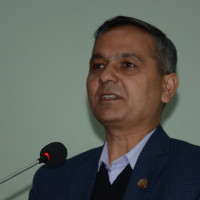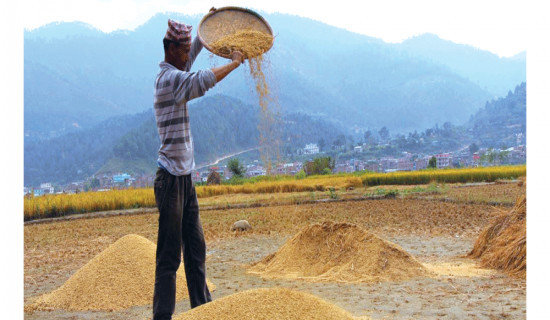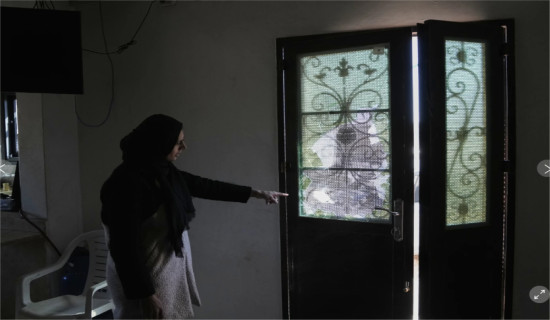- Wednesday, 24 December 2025
Control Corruption
Corruption is one of the major reasons why many countries from around the world have failed to get out of the vicious cycle of underdevelopment and poverty. No nation can achieve socio-economic development and prosperity without implementing effective anti-corruption measures.
In its Corruption Perception Index (CPI) for 2024, Transparency International (TI) has positioned Nepal at 107th out of 180 countries. With a score of 34 out of 100, Nepal has moved up one place from 108th in 2023 to 107th in 2024. However, the score has decreased by one point, from 35 to 34.
As a global movement against the scourge of corruption, TI usually ranks countries between 0 and 100. A higher score reflects lower corruption and vice versa. A score below 50 highlights heightened corruption activities in a country. This demonstrates Nepal’s persisting corruption problem. The report identifies imports or exports, public services, payments, contracts and taxes as key areas of bribery in the nation.
It is disappointing to see growing corruption at the local level following the adoption of federalism. This is evident in the case of user groups being involved in development activities. While the concept of user groups has emerged to increase participatory planning and development, media reports have frequently pointed out a rising tendency of user groups to get involved in corrupt practices.
What is even more discouraging is how this malpractice impedes the achievement of good governance. So, to overcome these obstacles, Nepal must focus on key areas of improvement. First, reforming societal mindsets is crucial. In our society, people admire material prosperity but rarely question whether such wealth is earned through fair means.
Second, the institutional capacity of the Commission for the Investigation of Abuse of Authority (CIAA) must be strengthened. Also, offices like the National Vigilance Centre (NVC) should be made proactive in their responsibility of curbing corruption. Similarly, the judiciary too should be made more capable of issuing its verdicts on corruption cases promptly. Third, fostering integrity among political parties and their leaders is essential. Most of the time, policies are formulated to cater to the needs and interests of particular groups, rather than focusing on the public good. This is why those in power must demonstrate a better level of ethics.
Today, the world is marked by the emergence of Information and Communication Technology (ICT). While its practice is in the nascent stages in Nepal, we must push for the adoption of ICT in the realms of public service delivery in all three tiers of government. Increased use of ICT can help uphold greater accountability, responsibility, and transparency thereby, reducing bribery in the public institutions.
We also have the opportunity to make use of technologies to promote the Right to Information (RTI) in the country, which could aid in curbing corruption. Weak regulatory practices raise the level of confidence among corrupt individuals to continue getting involved in bribery. A strict monitoring mechanism along with the provision of reward and punishment has the potential to change the situation for good. Corruption continues to be a significant challenge for Nepal. As a least developed country, Nepal is striving to achieve prosperity and sustainable development. These goals must be achieved through decisive and effective actions.

















